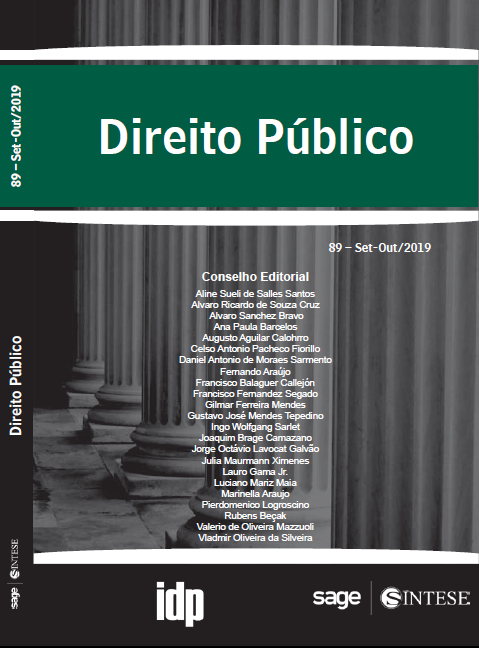Estruturas Sociais e Reformas Penais:
Críticas Marxistas à Punição no Capitalismo Tardio
Palavras-chave:
Marxismo, Punição, Prisões, Economia Política, Capitalismo Racial, Neoliberalismo.Resumo
A presente contribuição oferece uma análise crítica das teorias neomarxistas da punição. A primeira parte do texto reconstrói duas perspectivas que emergiram da tradição criminológica materialista: (1) as chamadas “histórias revisionistas da punição” dos anos 1970, que revelaram as conexões históricas entre a emergência da pena moderna – isto é, a transição dos medievais “espetáculos de sofrimento” para a prisão disciplinar – e a consolidação de um sistema capitalista de produção baseado na exploração do trabalho; (2) a crítica neomarxista da pena contemporânea, que desenvolveu mais o cenário marxista numa tentativa de dissecar as relações estruturais entre as transformações no campo penal e processos contínuos de reestruturação do capitalismo neoliberal. A segunda parte endereça algumas críticas que tem se desenvolvido contra a perspectiva materialista – i.e, sua tendência em ignorar as dimensões político-institucionais das penas, sua relativa falta de atenção às dinâmicas racializadas da acumulação capitalista, e uma excessiva ênfase aos sentidos instrumentais das práticas penais às custas das dimensões simbólicas da punição. A terceira seção indica alguns dos desafios enfrentados pelas teorias neomarxistas da punição hoje, visualizando – ao longo dos recentes estudos sobre o poder carcerário sob o capitalismo racial – algumas possíveis novas direções de pesquisa num cenário crítico mais amplo, focado na interseção entre raça e classe como forças poderosas na reprodução do capitalismo.
Downloads
Referências
Adamson, C. (1983) “Punishment after Slavery: Southern State Penal Systems, 1865–1890.”
Social Problems 30(5): 555–569.
Allen, F. A. (1981) The Decline of the Rehabilitative Ideal: Penal Policy and Social Purpose. New
Haven, CT: Yale University Press.
Althusser, L. (1967) “Contradiction and Over-Determination.” New Left Review 41: 15–35.
Baptist, E. (2014) The Half Has Never Been Told: Slavery and the Making of American Capitalism.
New York: Basic Books.
Beckett, K. and Western, B. (2001) “Governing Social Marginality: Welfare, Incarceration, and the
Transformation of State Policy.” Punishment & Society 3(1): 43–59.
Berg, M. (2011) Popular Justice: A History of Lynching in America. Lanham, MD: Rowman &
Littlefield.
Blakely, E. J. and Snyder, M. G. (1997) Fortress America: Gated Communities in the United
States. Washington, DC: Brookings Institution Press.
Bonefeld, W. (2017) The Strong State and the Free Economy. London: Rowman & Littlefield.
Bonger, W. A. (1916) Criminality and Economic Conditions. Boston: Little, Brown & Co.
Calavita, K. (2005) Immigrants at the Margins: Law, Race, and Exclusion in Southern Europe.
Cambridge: Cambridge University Press.
Camp, J.T. (2016) Incarcerating the Crisis: Freedom Struggles and the Rise of the Neoliberal
State. Oakland, CA: University of California Press.
Childs, D. (2015) Slaves of the State: Black Incarceration from the Chain Gang to the Penitentiary.
Minneapolis, MN: University of Minnesota Press.
Chiricos, T. G. and Bales, W.D. (1991) “Unemployment and Punishment: An Empirical
Assessment.” Criminology 29(4): 701–724.
Chiricos, T. G. and Delone, M. A. (1992) “Labor Surplus and Punishment: A Review and
Assessment of Theory and Evidence.” Social Problems 39(4): 421–446.
Christie, N. (1993) Crime Control as Industry: Towards Gulags, Western Style. New York:
Routledge.
Cohen, S. (1985) Visions of Social Control: Crime, Punishment, and Classification. Cambridge:
Polity Press.
Davis, A.Y. (2003) Are Prisons Obsolete? New York: Seven Stories Press.
Davis. M. (1995) “Hell Factories in the Field: A Prison-Industrial Complex.” The Nation, February
, 1995: 229–234.
Davis, M. (2006) City of Quartz: Excavating the Future in Los Angeles. London: Verso.
De Genova, N. (2005) Working the Boundaries: Race, Space, and “Illegality” in Mexican Chicago.
Durham, NC: Duke University Press.
De Genova, N. (2013) “Spectacles of Migrant ‘illegality’: The Scene of Exclusion, the Obscene of
Inclusion.” Ethnic and Racial Studies 36(7): 1180–1198.
De Genova, N. (2016) “Detention, Deportation, and Waiting: Toward a Theory of Migrant
Detainability.” Working Paper 18. Geneva: Global Detention Project.
De Giorgi, A. (2006) Re-thinking the Political Economy of Punishment: Perspectives on Post-
Fordism and Penal Politics. Aldershot, UK: Ashgate Publishing.
De Giorgi, A. (2010) “Immigration Control, Post-Fordism, and Less Eligibility: A Materialist Critique
of the Criminalization of Immigration Across Europe.” Punishment & Society 12(2):
–167.
De Giorgi, A. (2012) “Punishment and Political Economy.” In Simon, J. and Sparks, R. (eds.) The
SAGE handbook of punishment and society. London: Sage, pp. 40–59.
Ehrenreich, B. (2001) Nickel and Dimed: On (Not) Getting by in America. New York: Henry Holt &
Co.
Ehrenreich, B. and Hochschild, A. R. (eds.) (2002) Global Woman: Nannies, Maids, and Sex
Workers in the New Economy. New York: Henry Hold & Co.
Eisenhower, D.D. (1961) “Farewell Address to the Nation,” January 17, 1961. At
http://avalon.law.yale.edu/20th_century/eisenhower001.asp
Ewert, M.Y. (2016) “One Strike and You’re Out of Public Housing: How the Intersection of the War
on Drugs and Federal Housing Policy Violates Due Process and Fair Housing Principles.”
Harvard Journal on Racial and Ethnic Justice 32: 57–102.
Flamm, M.W. (2005) Law and Order: Street Crime, Civil Unrest, and the Crisis of Liberalism in the
s. New York: Columbia University Press.
Foucault, M. (1961/1988) Madness and Civilization: A History of Insanity in the Age of Reason.
New York: Random House.
Foucault, M. (1975/1977) Discipline and Punish. The Birth of the Prison. London: Penguin.
Foucault, M. (2015) The Punitive Society. Lectures at the College de France 1972-1973. London:
Palgrave MacMillan.
Galik L. and Gilroy, L. (2015) Annual Privatization Report 2015: Criminal Justice and Corrections.
Los Angeles: The Reason Foundation.
Gans, H.J. (1995) The War Against the Poor: The Underclass and Antipoverty Policy. New York:
Basic Books.
Garland, D. (1990) Punishment and Modern Society: A Study in Social Theory. Oxford: Oxford
University Press.
Garland, D. (2001) The Culture of Control: Crime and Social Order in Contemporary Society.
Oxford: Oxford University Press.
Garland, D. (2003) “Penal Modernism and Postmodernism.” in Blomberg, T.G. and Cohen, S.
(eds.) Punishment and Social Control. New York: Aldine de Gruyter, pp. 45–73.
Gilmore, R.W. (2007) Golden Gulag: Prisons, Surplus, Crisis, and Opposition in Globalizing
California. Berkeley, CA: University of California Press.
Gottschalk, M. (2015) Caught: The Prison State and the Lockdown of American Politics. Princeton,
NJ: Princeton University Press.
Haley, S. (2016) No Mercy Here: Gender, Punishment, and the Making of Jim Crow Modernity.
Chapel Hill, NC: The University of North Carolina Press.
Hall, S., Clarke, J., Critcher, C., Jefferson, T. and Roberts, B. (1978) Policing the Crisis: Mugging,
Law and Order and the State. London: MacMillan.
Handler, J. F. and Hasenfeld, Y.H. (2007) Blame Welfare, Ignore Poverty and Inequality.
Cambridge: Cambridge University Press.
Harris, N. (1997) The New Untouchables: Immigration and the New World Worker. London:
Penguin.
Harvey, D. (2004) “The ‘New Imperialism’: Accumulation by Dispossession.” Actuel Marx 1: 71–90.
Harvey, D. (2005) A Brief History of Neoliberalism. Oxford: Oxford University Press.
Herbert, S. and Brown, E. (2006) “Conceptions of Space and Crime in the Punitive Neoliberal
City.” Antipode 38(4): 755–777.
Hill-Maher, K. (2003) “Workers and Strangers: The Household Service Economy and the
Landscape of Suburban Fear.’ Urban Affairs Review 38(6): 751–786.
Hirsch, A.J. (1992) The Rise of the Penitentiary: Prisons and Punishment in Early America. New
Haven, CT: Yale University Press.
Ignatieff, M. (1978) A Just Measure of Pain: The Penitentiary in the Industrial Revolution, 1750-
London: Macmillan.
Jankovic, I. (1977) “Labor Market and Imprisonment.” Crime and Social Justice 8: 17–31.
Jessop, B. (2016) “State theory.” In Ansell, C. and Torfing, J. (eds.) Handbook on Theories of
Governance. Cheltenham, UK: Edward Elgar Publishing, pp. 71–85.
Jessop, B. (1996) “Post-Fordism and the State.” In Greve, B. (ed.) Comparative Welfare Systems.
London: Macmillan, pp. 165–183.
Kaeble, D. and Glaze, L. (2016) Correctional Populations in the United States, 2015. Washington,
DC: Bureau of Justice Statistics.
Katz, M. B. (2013) The Undeserving Poor: America’s Enduring Confrontation with Poverty. Oxford:
Oxford University Press.
Lacey, N. (2008) The Prisoners’ Dilemma: Political Economy and Punishment in Contemporary
Democracies. Cambridge: Cambridge University Press.
Lacey, N. (2012) “Punishment, (Neo)Liberalism and Social Democracy.” In Simon, J. and Sparks,
R. (eds.) The SAGE Handbook of Punishment and Society. London: Sage, pp. 260–280.
Lee, S. (2012) “By the Numbers: The U.S.’s Growing For-Profit Detention Industry.” ProPublica.
June 20, 2012. At http://www.propublica.org/article/by-the-numbers-the-u.s.s-growing-for-
profit-detention-industry.
Lichtenstein, A. (1996) Twice the Work of Free Labor: The Political Economy of Convict Labor in
the New South. London: Verso.
Lynch, M.J and Michalowski, R. (2006) A Primer in Radical Criminology: Critical Perspectives on
Crime, Power and Identity. Monsey, NY: Criminal Justice Press.
Lynch, M. (2009) Sunbelt Justice: Arizona and the Transformation of American Punishment.
Stanford: Stanford University Press.
Mancini, M. (1996) One Dies, Get Another: Convict Leasing in the American South: 1866–1928.
Columbia, SC: South Carolina University Press.
Manza, J. and Uggen, C. (2008) Locked Out: Felon Disenfranchisement and American
Democracy. Oxford: Oxford University Press.
Marshall, T. H. (1950) Citizenship and Social Class. Cambridge: Cambridge University Press.
Marx, K. (1887/1976) Capital. Volume I. London: Penguin.
Marx, K. and Engels, F. (1969) Selected Works, Vol. 3. Moscow: Progress Publishers.
Mauer, M. (2006) Race to Incarcerate. New York: The New Press.
McDonough, T., Reich, M., and Kotz, D. M. (eds.) (2010) Contemporary Capitalism and Its Crises:
Social Structure of Accumulation Theory for the 21st Century. Cambridge: Cambridge
University Press.
Melamed, J. (2011) Represent and Destroy: Rationalizing Violence in the New Racial Capitalism.
Minneapolis, MN: University of Minnesota Press.
Melossi. D. (2003a) “Introduction to the Transaction Edition”, in Rusche, G., & Kirchheimer, O.
(1939/2003) Punishment and social structure. Transaction Publishers, pp. ix-xlv.
Melossi, D. (2003b) “In a Peaceful Life: Migration and the Crime of Modernity in
Europe/Italy.” Punishment & Society 5(4): 371–397.
Melossi, D., & Pavarini, M. (1981) The Prison and the Factory: Origins of the Penitentiary System.
London: Macmillan.
Mezzadra, S., & Neilson, B. (2013) Border as Method, or, the Multiplication of Labor. Durham, NC:
Duke University Press.
Michalowski, R. J. and Carlson, S. M. (1999) “Unemployment, Imprisonment, and Social Structures
of Accumulation: Historical Contingency in the Rusche‐Kirchheimer
Hypothesis.” Criminology 37(2): 217–250.
Mishra, R. (2014) Welfare State in Capitalist Society. London: Routledge.
Muhammad, K.G. (2010) The Condemnation of Blackness: Race, Crime, and the Making of
Modern Urban America. Cambridge, MA: Harvard University Press.
National Research Council (2014) The Growth of Incarceration in the United States. Exploring
Causes and Consequences. Washington, DC: The National Academies Press.
Pal Singh, N. (2017) Race and America’s Long War. Oakland, CA: University of California Press.
Parenti, C. (1999) Lockdown America: Police and Prisons in the Age of Crisis. London: Verso.
Pashukanis, E. (1978) Law and Marxism: A General Theory. London: Pluto Press.
Piketty, T. (2014) Capital in the Twenty-First Century. Cambridge, MA: Harvard University Press.
Platt, A. M. (1969) The Child Savers: The Invention of Delinquency. Chicago: University of Chicago
Press.
Pratt, J. (1998) “Towards the ‘Decivilizing’ of Punishment?” Social & Legal Studies 7(4): 487–515.
Pratt, J., Brown, D., Brown, M., Wallsworth, S. and Morrison, W. (eds.) (2005) The New
Punitiveness: Trends, Theories, Perspectives. Portland, OR: Willan Publishing.
Quadagno, J. (1994) The Color of Welfare: How Racism Undermined the War on Poverty. Oxford:
Oxford University Press.
Quinney, R. (1980) Class, State, & Crime. New York: Longman.
Robinson, C.J. (1983) Black Marxism: The Making of the Black Radical Tradition. Chapel Hill, NC:
University of North Carolina Press
Rusche, G., & Kirchheimer, O. (1939/2003) Punishment and Social Structure. New Brunswick:
Transaction Publishers.
Rusche, O. (1933/2014) “Labor Market and Penal Sanction: Thoughts on the Sociology of
Punishment”. Social Justice 40(1-2): 252–264.
Sayer, A. (2001) “For a Critical Cultural Political Economy.” Antipode 33(4): 687–708.
Schlosser, E. (1998) “The Prison-Industrial Complex.” The Atlantic Monthly, December 1998:
–77.
Schor, J. (1992) The Overworked American: The Unexpected Decline of Leisure. New York: Basic
Books.
Schram, S. F. (2015) The Return of Ordinary Capitalism: Neoliberalism, Precarity, Occupy. Oxford:
Oxford University Press.
Shipler, D.K (2004) The Working Poor: Invisible in America. New York: Vintage.
Sieh, E.W. (1989) “Less Eligibility: The Upper Limits of Penal Policy.” Criminal Justice Policy
Review 3(2): 159–183.
Simon, J. (2007) Governing Through Crime: How the War on Crime Transformed American
Democracy and Created a Culture of Fear. Oxford: Oxford University Press.
Simon, J. (2014) Mass Incarceration on Trial: A Remarkable Court Decision and the Future of
Prisons in America. New York: The New Press.
Smith, N. (1996) The New Urban Frontier: Gentrification and the Revanchist City. London:
Routledge.
Soss, J., Fording, R.C. and Schram, S.F. (2011) Disciplining the Poor: Neoliberal Paternalism and
the Persistent Power of Race. Chicago: University of Chicago Press.
Spierenburg, P. C. (1984) The Spectacle of Suffering: Executions and the Evolution of Repression:
From a Preindustrial Metropolis to the European Experience. Cambridge: Cambridge
University Press.
Spitzer, S. (1975) “Toward a Marxian Theory of Deviance.” Social Problems 22(5): 638–651.
Standing, G. (2011) The Precariat: The New Dangerous Class. London: Bloomsbury.
Sudbury, J. (ed.) (2005) The Global Lockdown: Race, Gender, and the Prison-Industrial Complex.
New York: Routledge.
The Sentencing Project (2016) 6 Million Lost Voters: State-Level Estimates of Felon
Disenfranchisement, 2016. At: http://www.sentencingproject.org/publications/6-million-lost-
voters-state-level-estimates-felony-disenfranchisement-2016/
Thompson, Edward P. (1967) “Time, Work-Discipline, and Industrial Capitalism.” Past &
Present 38: 56–97.
Tonry, M. (2004) Thinking About Crime: Sense and Sensibility in American Penal Culture. Oxford:
Oxford University Press.
Wacquant, L. (2008) Urban Outcasts: A Comparative Sociology of Advanced Marginality.
Cambridge: Polity.
Wacquant, L. (2009a) Prisons of Poverty. Minneapolis: University of Minnesota Press.
Wacquant, L. (2009b) Punishing the Poor: The Neoliberal Government of Social Insecurity.
Durham, NC: Duke University Press.
Wacquant, L. (2014) “The Global Firestorm of Law and Order: On Punishment and
Neoliberalism.” Thesis eleven 122(1): 72–88.
Wagner, P. and Rabuy, B. (2017) Mass Incarceration: The Whole Pie 2017. Northampton, MA:
Prison Policy Initiative.
Wallace, D. (1981) “The Political Economy of Incarceration Trends in late US Capitalism: 1971-
” Insurgent Sociologist 11(1): 59–65.
Western, B. (2006) Punishment and Inequality in America. New York: Russell Sage Foundation.
Western, B. and Beckett, K. (1999) “How Unregulated is the US Labor Market? The Penal System
as a Labor Market Institution.” American Journal of Sociology 104(4): 1030–1060.
Wilson, W.J. (1987) The Truly Disadvantaged: The Inner City, the Underclass, and Public Policy.
Chicago: University of Chicago Press.
Wilson, W. J. (1997) When Work Disappears: The World of the New Urban Poor. New York:
Vintage.
Downloads
Publicado
Como Citar
Edição
Seção
Licença
Copyright (c) 2019 Direito Público

Este trabalho está licenciado sob uma licença Creative Commons Attribution-NonCommercial 4.0 International License.
O(s)/A(s) autores(as) dos manuscritos submetidos concorda(m) com as regras a seguir:
1) Todos os autores e autoras participaram do trabalho, são responsáveis pelas ideias e conceitos nele emitidos e atestam sua conformidade com os princípios éticos exigidos.
2) Todos os autores e autoras concordam com a forma final do trabalho e em ceder os direitos para publicação nos canais de publicação da Escola de Direito do IDP.
3) Todos os autores e autoras informam que o manuscrito é de sua autoria e assumem a responsabilidade pelo trabalho, declarando que a obra a ser publicada não infringe quaisquer direitos de propriedade intelectual de terceiros.
3.1) Em caso de submissão simultânea, além da reprovação imediata do artigo e comunicação ao(s) respectivo(s) periódico(s), a Revista Direito Público se reserva o direito de não receber novas submissões de todos os autores implicados pelo prazo de 2 (dois) anos, contado a partir da data de ciência do fato.
4) Todos os autores e autoras autoriza(m) a edição de seu trabalho e cede(m) à Escola de Direito do IDP os direitos de autor para reproduzir, editar e publicar ou veicular o citado trabalho em qualquer forma midiática, resguardada a autoria, em particular sob forma digital, em arquivo eletrônico online na Internet, bem como armazená-los em seu repositório de acordo com o desenvolvimento do processo editorial. Esta concessão não terá caráter oneroso para a Escola de Direito do IDP, não havendo remuneração sob qualquer modalidade pela utilização do referido material, tendo este o caráter de colaboração científica.












